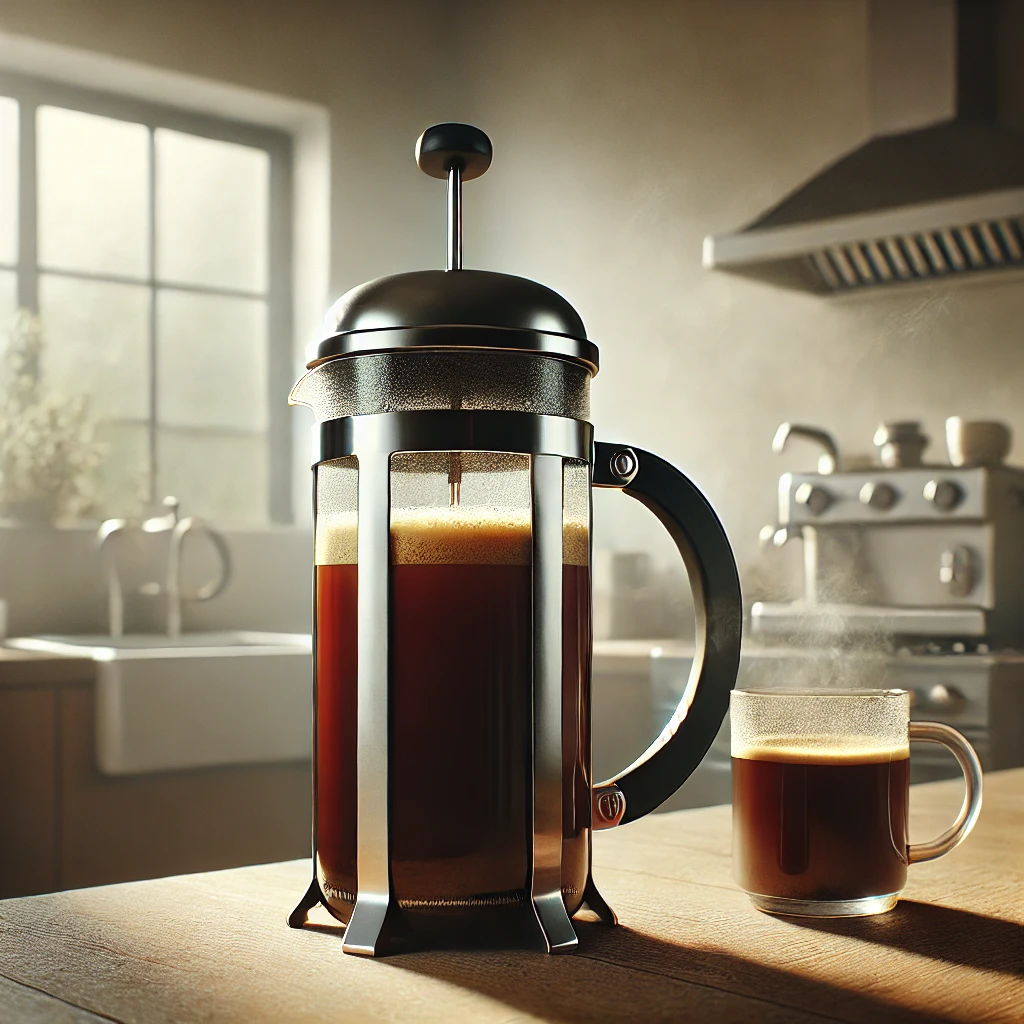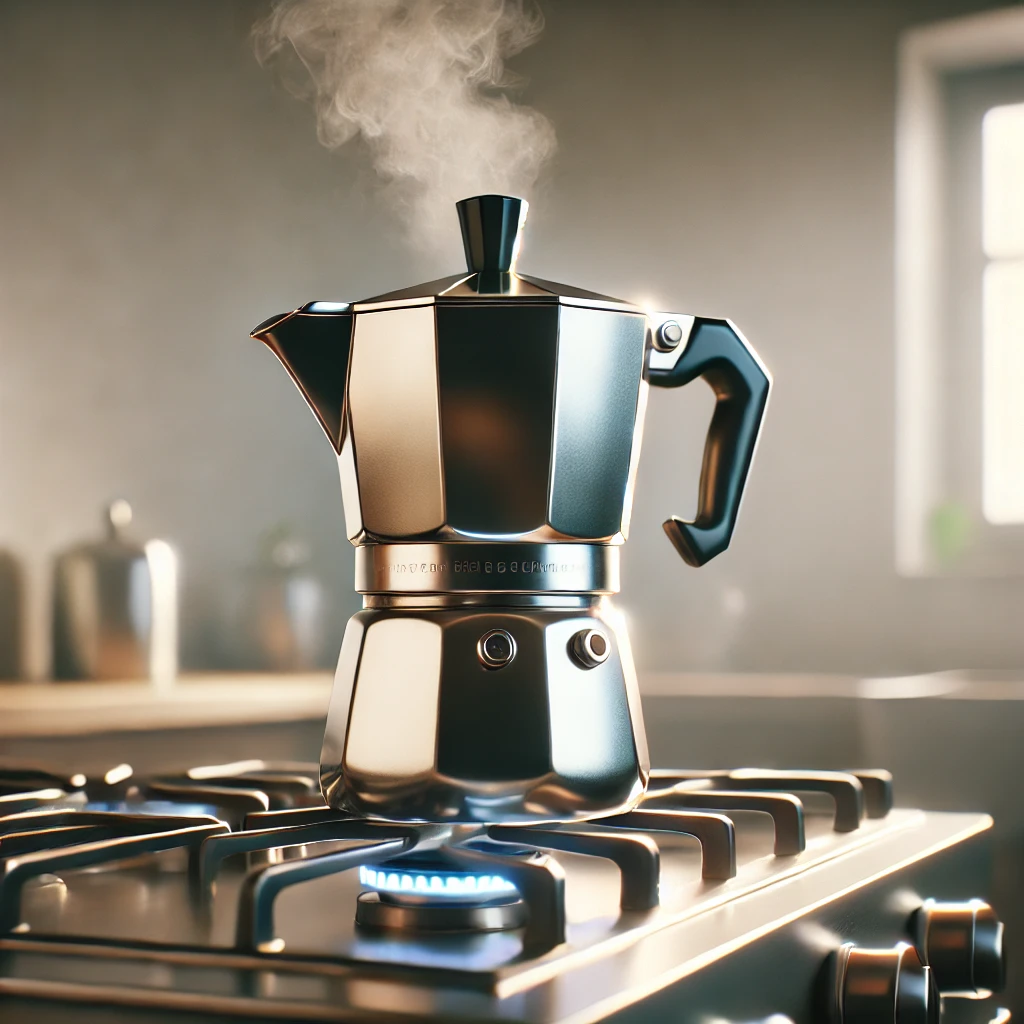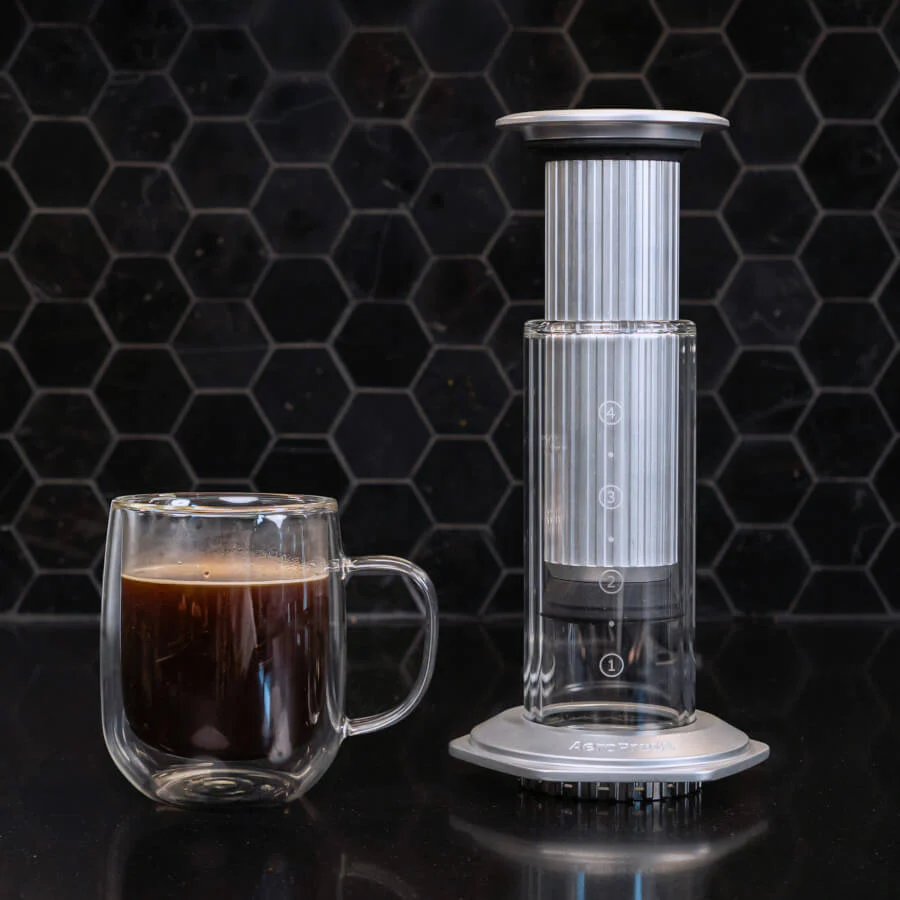A plastic-free coffee station is an excellent addition to any eco-conscious individual’s kitchen. Products designed to minimize or eliminate the use of plastic ensure a healthier and more sustainable option for brewing coffee.
Key Benefits of Plastic-Free Coffee Makers
-
Healthier Coffee Experience: Eliminating plastic components reduces the risk of harmful chemicals like BPA and phthalates contaminating the coffee, which can pose health risks including hormonal imbalances and other long-term health issues.
-
Enhanced Flavor: Plastic-free coffee makers often provide a purer coffee flavor. Materials like stainless steel and glass do not impart any off-flavors, allowing the true taste of the beans to shine.
-
Durability: Coffee makers made from stainless steel or glass generally offer superior durability compared to plastic models. They are more resistant to wear and tear and can withstand high temperatures without deforming or degrading.
Popular Types of Plastic-Free Coffee Makers
- Pour-Over Coffee Makers: Typically made from stainless steel or glass, these allow precise control over the brewing process. Examples include the Chemex glass coffee maker and the Hario V60, which offers ceramic, glass, and metal options.

- French Press: Stainless steel or borosilicate glass French presses are excellent choices for plastic-free brewing. Brands like Espro and Frieling offer high-quality stainless steel designs.

- Stovetop Espresso Makers: Known as Moka pots, these are usually made from aluminum or stainless steel, providing a robust and plastic-free option for espresso lovers. The Bialetti Moka Express is a well-known model made primarily from aluminum.

- Immersion Brewing Coffee Maker The most famous brand in this category is Aeropress. They have recently announced a brand-new plastic free version of their most popular coffee maker. This is definitely one to keep an eye on when it launches in 2025!

Considerations When Choosing a Plastic-Free Coffee Maker
-
Material: Look for coffee makers made entirely of stainless steel, glass, or ceramic. Ensure that all components, including lids and handles, are plastic-free.
-
Capacity: Choose the size of the coffee maker based on your daily coffee consumption, from single-serve pour-over drippers to large French presses.
-
Ease of Cleaning: Select designs that are easy to disassemble and clean. Stainless steel models are particularly easy to maintain and often dishwasher-safe.
-
Style: Choose coffee equipment that is both enjoyable to use and aesthetically pleasing to enhance your morning ritual.
Adopting a plastic-free coffee maker not only contributes to a healthier lifestyle but also supports environmental sustainability. These machines embody a commitment to quality and eco-conscious living, making them essential for any plastic-free coffee station.
The Environmental Impact of Plastic in Coffee Makers
Plastic in coffee makers poses significant environmental concerns. The extensive use of single-use plastics, such as disposable coffee pods and filters, contributes to the growing problem of plastic waste. When not recycled properly, these items end up in landfills, taking hundreds of years to decompose and releasing harmful chemicals into the soil and water during their decomposition process.
Single-Use Plastics
Many coffee makers use single-use pods that are often non-recyclable, leading to avoidable waste production.
Additionally, the production and disposal of plastic coffee makers themselves involve the extraction and processing of fossil fuels, leading to carbon emissions and environmental degradation. Discarded plastic coffee makers contribute extensively to landfill waste.
Furthermore, microplastics from degraded plastics can infiltrate water systems, causing harm to marine life and entering the human food chain, posing health risks for ecosystems and humans alike.
Microplastic Pollution
- Marine Life: Degraded plastics break down into microplastics, harming aquatic creatures.
- Human Health: Microplastics enter the food chain, posing potential health risks.
Reducing the use of plastic in coffee stations can significantly lessen these environmental impacts. Opting for products made from sustainable materials, such as glass and stainless steel, offers a more environmentally friendly approach to enjoying coffee. These alternatives can reduce waste, minimize carbon footprints, and limit the negative effects on both the environment and human health.
Factors to Consider When Choosing a Plastic-Free Coffee Maker
Selecting a plastic-free coffee maker involves evaluating multiple aspects to ensure a sustainable and high-quality coffee brewing experience.
Material Composition
Opt for coffee makers primarily constructed from stainless steel, glass, or ceramic. These materials are durable and free from chemicals typically found in plastic products. Stainless steel is known for its rust-resistant properties, while glass and ceramic offer a clean and pure taste.
Type of Coffee Maker
Consider the type of coffee maker that aligns with personal preferences and brewing needs:
- French Press: Often made from stainless steel or glass, it offers a full-bodied coffee experience.
- Pour-Over: Usually consists of a ceramic or stainless steel dripper along with a glass carafe, providing control over brewing time and temperature.
- Stovetop Espresso Maker: Typically made from stainless steel or aluminum, it is ideal for making rich and strong coffee.
- Immersion Brewing Coffee Maker: The AeroPress produces a clean, smooth cup of coffee with low bitterness and acidity. Its use of filters removes most coffee oils and fine particles, resulting in a lighter mouthfeel compared to unfiltered methods.
Price
Compare prices while considering material quality and durability. Investing in a high-quality, plastic-free coffee maker can lead to long-term savings by avoiding frequent replacements.
Additional Features
Look for additional features that enhance the coffee brewing experience, such as:
- Thermal Insulation: Stainless steel models with double-wall construction can keep coffee hot for extended periods.
- Filter Type: Reusable metal filters eliminate the need for paper filters, contributing to an eco-friendly setup.
Eco-Friendliness
Assess the overall environmental impact, including the manufacturer’s sustainability practices. Choosing a brand committed to eco-friendly production ensures a more significant positive impact on the environment.
By considering these factors, one can make an informed decision that aligns with both personal preferences and environmental consciousness. Investing in a plastic-free coffee maker contributes to a more sustainable and enjoyable coffee station.